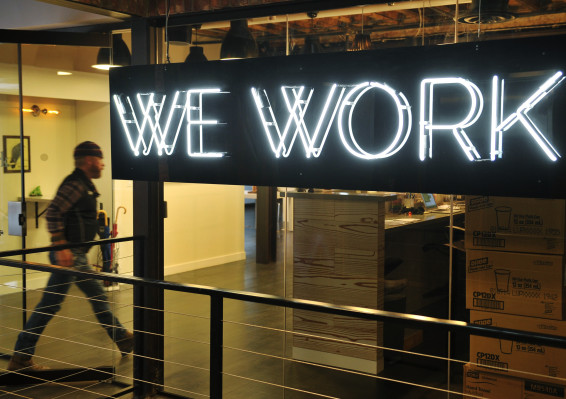Even as Facebook and Twitter took the unprecedented step of silencing a sitting president after the violent insurrection at the Capitol — pouring gasoline on the fire of a years-long debate over freedom of speech on the platforms — critics Thursday called on the Silicon Valley companies to go further.
Facebook and Instagram on Thursday blocked President Donald Trump from posting at least until he leaves office Jan. 20. Twitter, which on Wednesday banned him from the platform for at least 12 hours, said it was “continuing to evaluate the situation.” The moves came after Trump and his supporters have spent months using the social media platforms to spread false claims that the presidential election was rigged, a campaign that culminated in a pro-Trump mob storming the Capitol building Wednesday in an attempt to prevent lawmakers from certifying President-elect Joe Biden as the next leader of the country. The resulting melee, which left at least four people dead, was the final push that prompted Facebook and Twitter to remove — at least temporarily — the president from their platforms. A Capitol police officer also died following the riot, according to reports Thursday.
The companies’ actions mark an inflection point in the years-long debate over how much responsibility social media platforms should take in policing the content on their sites.
“These were steps the Internet services were reluctant to take. They wanted all sides to have a voice. And I think they realize they can’t do so — they can’t let every side have a voice,” said Eric Goldman, co-director of the Santa Clara University High Tech Law Institute. “So pulling the nuclear option on the sitting president shows really, I think, that social media companies have made the choice that they’re going to have to intervene in situations where it’s a factual gray area. They’re not just going to let everyone have unfettered say.”
In a Thursday post, Facebook founder Mark Zuckerberg explained that while the company had previously allowed Trump to use the platform freely — occasionally removing a post or tagging it with a warning — Wednesday changed everything.
“The current context is now fundamentally different, involving use of our platform to incite violent insurrection against a democratically elected government,” he wrote. “We believe the risks of allowing the President to continue to use our service during this period are simply too great.”
Instagram, which is owned by Facebook, also locked the president’s account for at least two weeks.
Twitter on Thursday would provide no additional update on its 12-hour lock on Trump’s account, saying only: “We will keep the public informed, including if further escalation in our enforcement approach is necessary.” After going more than 24 hours without tweeting — his longest break from the site since Nov. 2019, according to The Washington Post — Trump tweeted a conciliatory video message Thursday afternoon. He called Wednesday’s riot a “heinous attack” and vowed “my focus now turns to ensuring a smooth, orderly and seamless transition of power.”
For some critics, the bans by powerful companies that already have been hauled before Congress multiple times to explain their actions are too little, too late. The companies had been gradually ramping up their policing of Trump’s posts over months — first letting him have free rein, then labeling the information in some of his posts as disputed, and finally removing some posts.
“This is not acceptable in our country,” said Rep. Anna Eshoo, D-Palo Alto. “These are American companies. They owe something to America.”
Trump should be banned from the platforms for life, and Wednesday’s chaos should spark a national reckoning regarding the dangers of social media, said Geeta Anand, dean of UC Berkeley’s school of journalism.
“What happened yesterday should lead to an outcry across the country,” she said, “a demand that we as the country engage in a dialogue with the leaders of Facebook and Twitter and come up with a better way of running these platforms that’s more responsible and doesn’t threaten the very foundations of democracy.”
Former First Lady Michelle Obama also joined the calls for more extreme action.
“Now is the time for Silicon Valley companies to stop enabling this monstrous behavior,” she tweeted, “and go even further than they have already by permanently banning this man from their platforms and putting in place policies to prevent their technology from being used by the nation’s leaders to fuel insurrection.”
But others warned against using Wednesday’s attack on the Capitol as an excuse for Internet censorship.
“This is the exact opposite of what we need to do,” Evan Greer, deputy director of Fight for the Future, tweeted Wednesday. “We need to address this problem at its root: systemic racism & injustice.”
The social media companies’ blocks on Trump’s accounts come as the Democrats — many of whom have been vocal about their desire to impose new regulations on social media and other tech companies — took control of the Senate, giving them full control of Congress. By cracking down on Trump, the companies could be attempting to ingratiate themselves with Democratic leaders, said Travis Ridout, a professor of political science at Washington State University and co-director of the Wesleyan Media Project.
“It’s hard to know whether such decisions are motivated by democracy or the companies’ best interest,” he said. “But for either one, I think the decision makes sense.”
It’s unclear for how long Twitter and Facebook will silence Trump, and whether the president will simply find other platforms to make his voice heard. Experts suggest he may turn to right-wing social media sites like Parler or Gab, which already is courting the president. But neither of those platforms will grant Trump nearly the reach to millions of followers that Twitter and Facebook did.
As Trump leaves office this month, Goldman expects new politicians’ voices to fill the social media hole he leaves behind. But after seeing Twitter and Facebook crack down on Trump, he said, elected officials might become more mindful of how they use the platforms, he said.
“One thing politicians might take away from Trump’s suspension,” he said, “is Twitter could do that to me.”
Staff writer Emily DeRuy contributed to this report.









